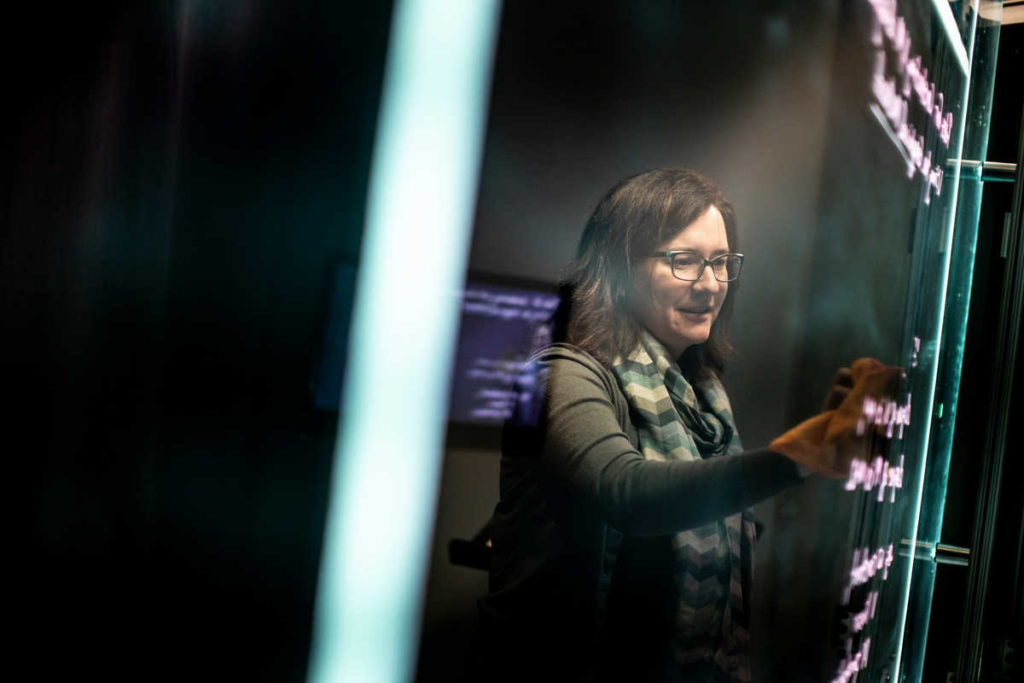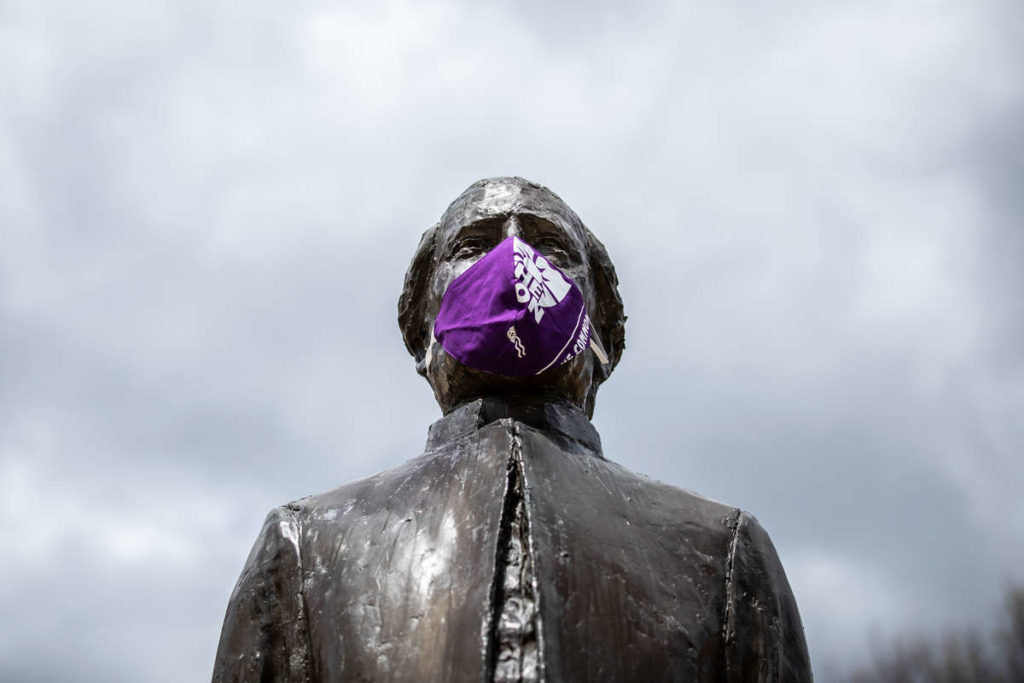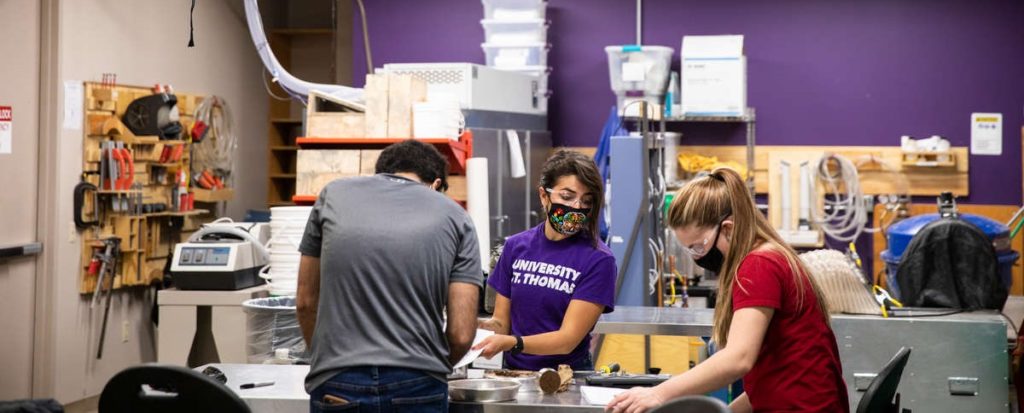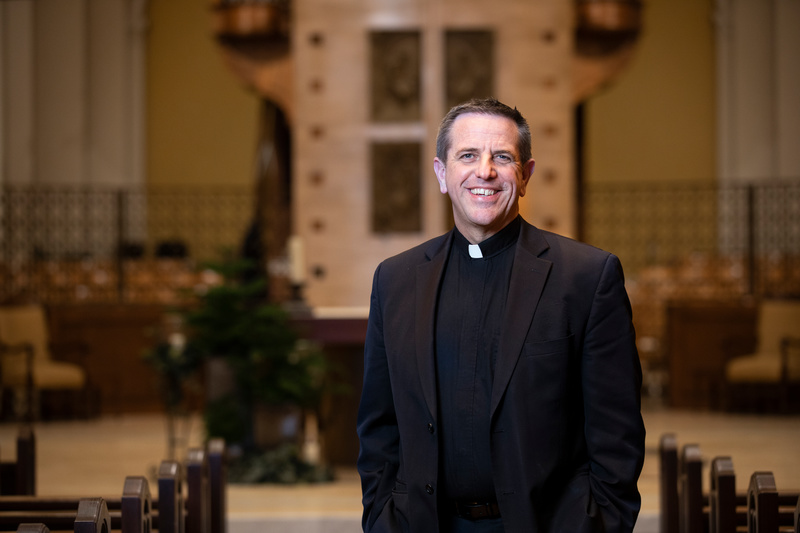Second-year student Mickey Tesfay remembers the conversations she and classmates had at the beginning of their final semester at Dougherty Family College (DFC), imagining all the memories they were going to make.
After COVID-19 has forced everything school-related into the digital space, the memories they’re making are a bit different than they envisioned.“To have things change so abruptly was sad,” Tesfay said. “It’s been hard.”
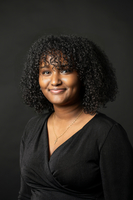
DFC student Mickey Tesfay.
Tesfay said her mentality shifted after a conversation with Dean Alvin Abraham, which solidified that she would be continuing on next year at St. Thomas with an Excellence Scholarship.
“This all has made me realize, there are worse things in life. I can’t let this affect me and what I’ve done and what I’m trying to do the rest of the semester. I’ve come too far,” Tesfay said. “I’m trying to make something of myself and make my community and friends proud.”
Tesfay, her peers and everyone at DFC have done enough in the past month-plus to make anyone proud, taking a program built on high-touch, close connections and relationships, and completely shifting it online. The amount of work, patience, dedication and grace that has gone into that effort has been massive, and has contextualized in completely new ways what a unique school and community DFC is.
“Every single person on our team, students included, have really rallied and tried to figure out how best to navigate their personal lives and show up fully to do everything they can to do their job well, to be as strong a student as possible. That’s huge,” Abraham said. “It’s so telling of our team and students. They’re committed to their education, and our team is committed to providing a high-quality experience for students, even with all this going on. The future in a variety of ways is unknown, but there’s a lot of hope. We’ve all risen to the challenge in fantastic ways. That’s a testament to our team and the students we have and how special they are.”
‘There wasn’t any hesitation’
For the entire St. Thomas community, the fast-moving, emerging reality in March of the effect COVID-19 would have meant a short adjustment period for DFC faculty, staff and students. Abraham said everyone worked “extremely hard the first couple of weeks to make sure we were able to still provide high-quality teaching, which is the most important part of the work. Faculty rallied and worked closely to make that transition, build out Canvas, making sure we’re utilizing Zoom and synchronous sessions, with that being the best way to continue that personal touch.”
For transfer counselor Bayza Weeks, that initial adjustment period – and the weeks since – have further solidified the purpose and mission for DFC’s faculty and
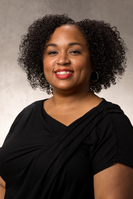
Bayza Weeks, DFC Transfer Counselor.
staff to provide for students.
“Having to create a completely online program that’s already new and for students who need the additional support, a time like this only makes it more relevant of the need for DFC,” said Weeks, who added that DFC’s past integration of online platforms before this semester has helped everyone at DFC with the transition. “Our faculty are going above and beyond to make this a reality. People are working around the clock. … Without the collective work of our entire team, this would not be happening. It can’t be just faculty, just support staff; we’ve been working together as a team to make sure we’re continuing to provide the best we can to our students. There wasn’t any hesitation from anyone.”
Theology professor Sarah McCann said as time has gone on both she and her students have learned together how to better navigate a fully online environment. As that comfortability has grown, so has students’ appetite to make sure their academic rigor is continuing as before,
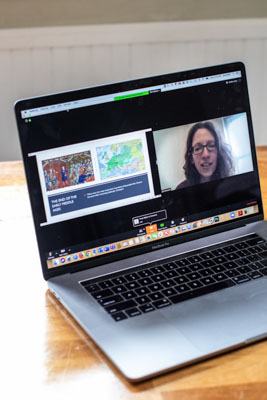
Theology Professor Sarah McCann teaches an online class.
evidenced, she said, in students insisting on equal treatment and expectations for final exams as their peers who took the same class in person during fall semester.
“The conversations have really turned toward what are they going to do that’s equally rigorous to fill that gap in terms of fairness,” McCann added. “It says a lot about our students.”
Tesfay said DFC’s cohort model has made a big difference for her and classmates throughout the recent changes, as well.
“The support from my cohort has been phenomenal,” she said. “Everyone has been going to same classes, but we bond on an emotional level. We see each other as family and have a certain level of respect. We can see when someone is going through something and reach out. The bond and what we reciprocate to each other … everyone is so sweet and encouraging to each other.”
‘Rallying around the students’
Along with academics, a huge emphasis has been placed on ensuring every bit of DFC’s student support systems are still effective:
- Every student has a faculty mentor who are still checking in weekly with students.
- About 60% of students have continued with their paid work as part of the school’s internship program, which places DFC students at dozens of companies across the Twin Cities.
- Tutoring sessions have fully moved online from 11 a.m.-9 p.m. every day.
- Weeks’ work as transfer counselor has increased as she helps sophomores line up scholarships, financial aid and explore potential best fits for colleges and universities to continue toward a bachelor’s degree.
- Counselors are continuing to work with past DFC graduates.
- Social workers are helping students with anything from food access, to unemployment filing, to applying to the St. Thomas Student Emergency Fund.
- Meals are available for students to pick up on campus at T’s.
“We’re really rallying around the students, staying in close contact. The work hasn’t stopped,” said Abraham, adding that he and his team have weekly brainstorming sessions of different ways they can engage students. “It’s been a quick turnaround, as everyone has had to do, but we feel good about where we are. We’re constantly monitoring and making sure students aren’t falling through the cracks.”
Faculty and staff are supporting one another, as well, with regular team check-ins and a standing Wednesday evening Zoom gathering to socialize and connect.
“My respect has just grown enormously for my colleagues and leadership. Colleagues have been a fantastic resource; I’ve been inspired by them,” McCann said. “Things may changed in big ways, but the expectations and levels of support have stayed there.”

